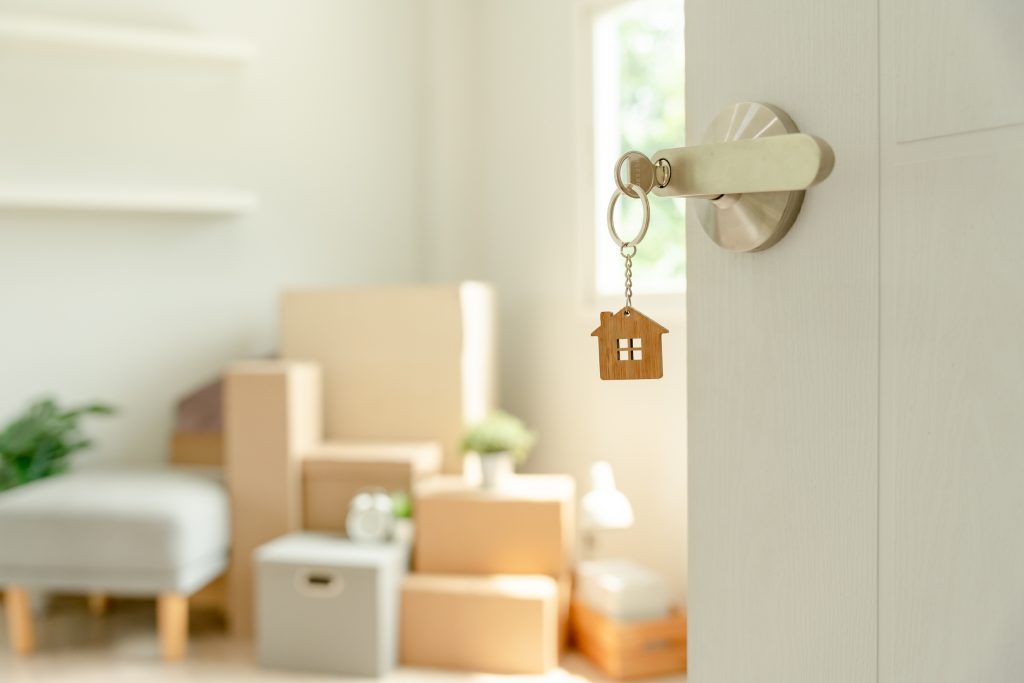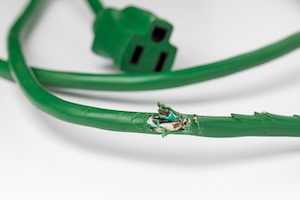Working remotely was, in the past, something only a small minority of workers were able to experience. Since the pandemic, however, the way businesses operate has changed completely – in 2023, the norm for millions of companies is to offer the option to work remotely or at least offer a hybrid week.
In fact, businesses expecting their staff to work from the office five days a week now seems like an archaic attitude to have. While this change towards more flexible working habits has impacted many things (less time spent on a hot and busy commuter train, for example!), one aspect that many workers may need to consider is working from home insurance.
In this guide, we’ll cover what you might want to know about working from home insurance cover, whether you need it, and any changes you might need to make to your existing home insurance policy.
Work From Home Insurance
Now more than ever, people are swapping out busy commutes and long days at the office with longer lay ins and innovative home office setups. Perhaps you’ve worked from home for years, or perhaps the events of the past year have meant you’re stationed for your 9 to 5 at your kitchen table – with no plans to return any time soon.
The fact is, working from home is no longer the luxury of self-employed people and those with lenient employers. These days, it’s the norm.
As a result, we’re likely to see a number of changes across the country. For starters, working hours become more flexible as there’s no longer a need to be in one place for a blocked-out period of time. Teams lean on technology such as video conferencing and project management tools to sync up and stay organised instead of hour-long meetings and desk chats.
What might surprise you, however, is the wider impact working from home can have. For example, on your home insurance.
Why is my home insurance impacted by working from home?
Working from home changes the dynamic of day to day life. Houses are now occupied the large majority of the time rather than left empty for at least 8 hours a day. This, in turn, has an impact on the risks your home insurance is in place to cover you for.
Office equipment
While home insurance will generally cover your possessions such as furniture, clothes etc against damage or theft, your policy may not extend to cover all the equipment you need to work from home.
If you have taken equipment home from your office, for example, in order to carry out your work, you may need to check whether this equipment is covered by your company, or whether it falls under your home insurance policy should something happen to it.
Contents insurance
You may also want to consider that your contents insurance may not cover accidental damage to gadgets such as mobile phones or laptops once outside the home, so if you are taking your equipment elsewhere from time to time (for example, working from a coffee shop), you may want to check if you can add additional cover for this or if your employer’s insurance covers these items.
What’s more, if you have created a space to house your home office equipment permanently (such as buying a desk, chair, monitor, etc), you might need to consider increasing your home insurance cover to ensure those additional items are covered by home insurance.
Do I need to change my home insurance policy if I’m working from home?
It is always a good idea to check with your policy provider specifically, but in general, most home insurance providers have adjusted their policies so that office-based workers remain covered when working from home during the pandemic.
You should note that this is based on the assumption that you are doing clerical work at home (i.e. working from a laptop or computer at a desk). If your work expands beyond that, your home insurance may not be enough.
For example, if you are meeting people in your home for business purposes, have employees operating out of your home, or are storing stock in your house or an outhouse (garage, shed etc), you may need to look into additional insurance to cover these things.
Is my home insurance still valid if I start working from home?
If you are thinking about working from home long-term, you will need to notify your home insurance provider. It’s highly likely that a standard home insurance policy will not cover the items you use for business purposes (such as laptop, monitor, keyboard) etc should they be damaged or stolen.
The fact is, accidents can happen – while your chances of home burglary may be reduced due to you being home more often, your risk of spilling a drink over your laptop when working from the sofa is always there. Make sure that you have the correct insurance in place to cover your business equipment should an incident take place.
The key thing is to reach out to your home insurance provider and notify them that you are working from home, or you risk your home insurance policy being invalidated should you need to make a claim as a result of your work setup. Your provider will be able to advise on what is covered, and what is not.
What does my home insurance cover?
Home insurance covers either just the contents of your home (also known as contents insurance), the building itself (known as buildings insurance), or both.
Find out exactly what is covered by your policy here.
Working from home insurance options
If you’ve notified your home insurance provider that you are working from home and discover that your policy does provide you with adequate cover currently, you may want to consider adding the following as additional cover:
- Personal possessions: You may be able to add additional cover for items that you take away from the home.
- Accidental damage: This provides additional cover to your contents for accidental events. Check with your provider that this does extend to items used for business purposes.
- Public liability: This provides you with cover against claims made by a third party for an injury or accidental damage to their property. If you have customers coming to your home, this is definitely an element of insurance to consider.
- Business insurance: If you store stock at home currently, a business insurance policy may be necessary to cover your supplies.
- Employer’s liability insurance: If you have employees working with you from your home, you may want to consider employer’s liability insurance to cover you from claims made by your employees due to injury or accidental damage.
- Professional indemnity: This covers you if someone makes a complaint about the service you have provided and chooses to sue you if the advice/service given was wrong or cost them money.
- Gadget insurance: If you use high-tech equipment to operate your business, you may want to consider a separate insurance policy to cover the full value of these gadgets.
Running a business from home
If you work from home but not as an employee – for example, you have your own business, you may be wondering whether this means you need to take out business insurance in addition to your home insurance cover.
Running your business from home and working from home may have a few similarities, but you are likely to have additional things to consider for your business.
Importantly, if what you do for your business goes beyond clerical-based work (i.e. the same as what you would do working at an office), you are likely to need cover beyond a home insurance policy.
To keep your home, your business, your employees, and yourself covered in the event of an injury, theft, or accidental damage to your or a third party’s property, make sure you’ve got the right level of cover in place from day one.
For example, you might need to consider taking out:
- Business equipment cover
- Professional indemnity insurance
- Public liability insurance
- Employer’s liability insurance, if you are employing members of staff
It’s also important to check that using your home for business or professional purposes will not invalidate your home insurance policy. Check your policy documents, for example, to find out what policy you would need in place should you need to make a claim in the event of an accident, injury, or damage to property occurring while operating your business in your home.
However, if you are running your own business but do not have any additional staff and are simply, for example, working from your computer at home, you may not need business insurance.








